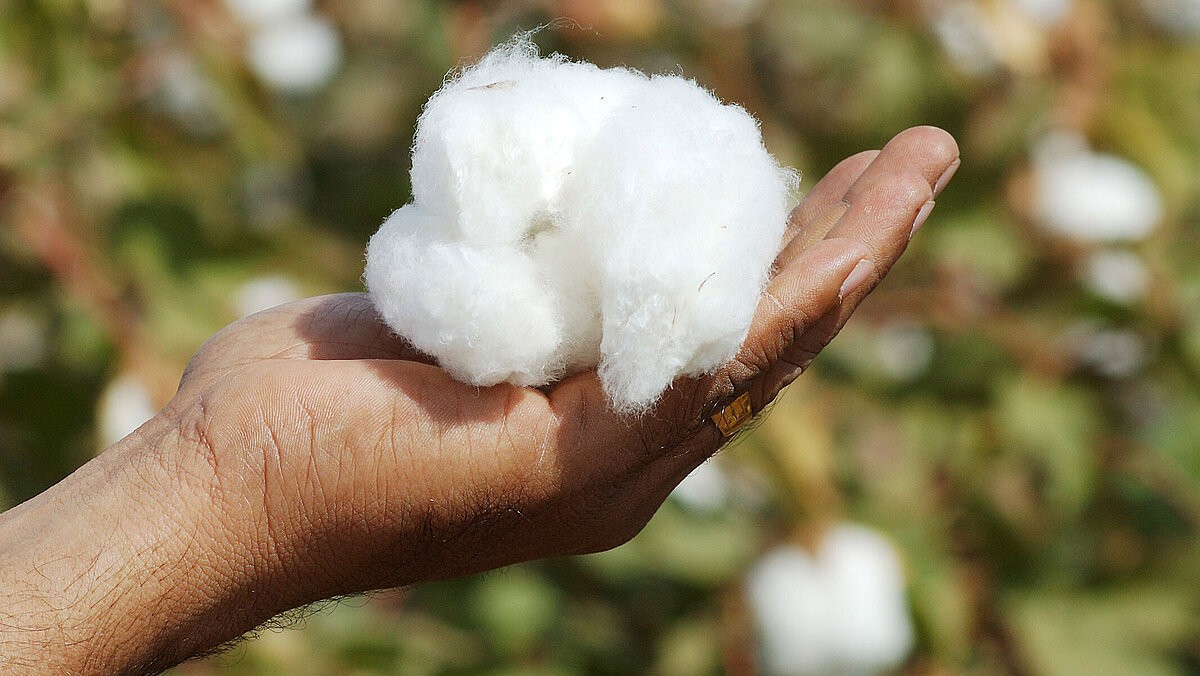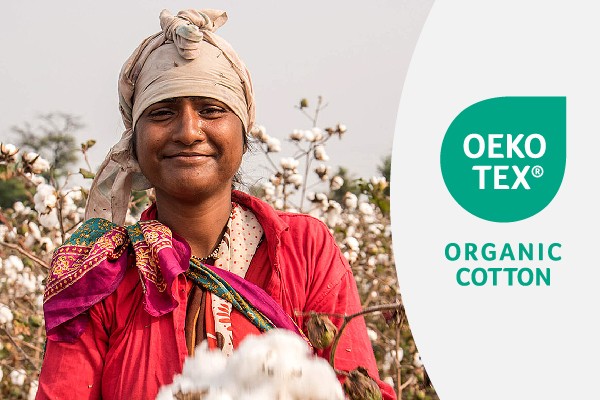the OEKO-TEX® ORGANIC COTTON certification is offering a comprehensive and objective testing system for organic cotton products with a fully verified chain of custody. The focus is product and consumer safety as well as traceability. Fashion and textile products bearing this label were made with organic cotton, grown without GMOs (genetically modified organisms) or pesticides, and were tested for other harmful substances.
For verification of organic origin, OEKO-TEX®’s GMO quantification method differentiates between contamination and purposeful mixing of conventional cotton. The new certification works in compliance with several global regulations including EU REACH Annex XIV and XVII, US CPSIA (lead), EU POP regulation.

OEKO-TEX® has been testing and certifying organic cotton since the launch of OEKO-TEX® STANDARD 100 over 30 years ago. As the use of organic cotton in fashion and textiles has increased, so have the requests to call out organic cotton in OEKO-TEX® STANDARD 100 certificates.
« OEKO-TEX® ORGANIC COTTON offers targeted support for companies along the supply chain. It allows them to protect human health based on a scientifically proven criteria catalogue and neutral laboratory tests. End consumers receive a reliable, manufacturer-independent product label. This means safer, organic cotton products that have been tested along the whole chain of custody – a valuable contribution to effective consumer protection». Georg Dieners, Secretario General de OEKO-TEX®.
“ORGANIC COTTON” certifies articles and materials made of 100% organic cotton, whereas “ORGANIC COTTON Blended” certified articles must be made of at least 70% organic cotton. With proof of origin, any article containing organic cotton can still be tested for harmful substances and certified with OEKO-TEX® STANDARD 100. The certification can be communicated with the OEKO-TEX® STANDARD 100 label, with organic cotton stated in the certificate text. Mixtures of organic and conventional cotton are forbidden in all three certificates.

The OEKO-TEX® quantitative GMO testing method is the first method able to differentiate between intentional mixing versus unavoidable contamination (e.g. from fibre flight) with conventional cotton. For the launch of ORGANIC COTTON, OEKO-TEX® has set a limit of <10% GMOs. The intention is to gather knowledge and experience through incoming data, then adapt the limit value to further develop and improve the certification.
To ensure organic farming practices at the farm level, OEKO-TEX® ORGANIC COTTON requires a certification according to the IFOAM (International Federation of Organic Agriculture Movements) family of standards. The full test program of the OEKO-TEX® STANDARD 100 is carried out to ensure product safety.
To cover social criteria in the full extent, OEKO-TEX® ORGANIC COTTON can be combined with OEKO-TEX® STeP facility certification, which is also part of OEKO-TEX® MADE IN GREEN product label. The latter enables full supply chain transparency for end-consumers via QR code, which guides consumers to the OEKO-TEX® label check.


